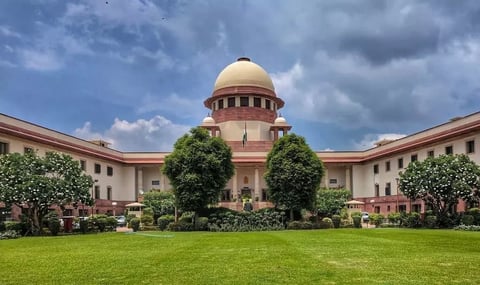SC examines legality of seizing private property for common good

SC examines legality of seizing private property for common good
The Supreme Court, in a nine-judge bench headed by Chief Justice DY Chandrachud, deliberated on whether privately-owned resources can be deemed ‘material resources of the community’ under Article 39 (b) of the Constitution. This constitutional provision, a part of the Directive Principles of State Policy, aims to distribute ownership and control of resources to serve the common good.
During the proceedings, the bench emphasized the Constitution’s intent for social transformation, cautioning against interpreting private property as exempt from serving societal welfare. The discussion arose from petitions challenging the state’s authority to appropriate private property under the guise of constitutional schemes.
The bench scrutinized the historical context of the Constitution’s drafting, highlighting the imperative for redistributing wealth and ensuring welfare measures.
It underscored that the ethos of sustainable development necessitates regarding property as held in trust for future generations and the broader community, rejecting extremes of exclusive ownership or absolute socialism.
Addressing the need for inter-generational equity, the bench underscored Article 39 (b)’s role in fostering social transformation. It rejected the notion that private property automatically falls outside the purview of this constitutional provision, emphasizing the Constitution’s overarching goal of societal well-being.
Furthermore, the bench indicated its intention to examine the immunity granted by Article 31 C to laws protecting Directive Principles of State Policy. Although this aspect was not originally referenced, Solicitor General Tushar Mehta offered to provide assistance on the matter.
The discussions remained inconclusive, with proceedings scheduled to continue. The case, initiated by the Property Owners Association of Mumbai in 1992, underscores broader constitutional debates on the balance between individual property rights and the collective welfare of society.







